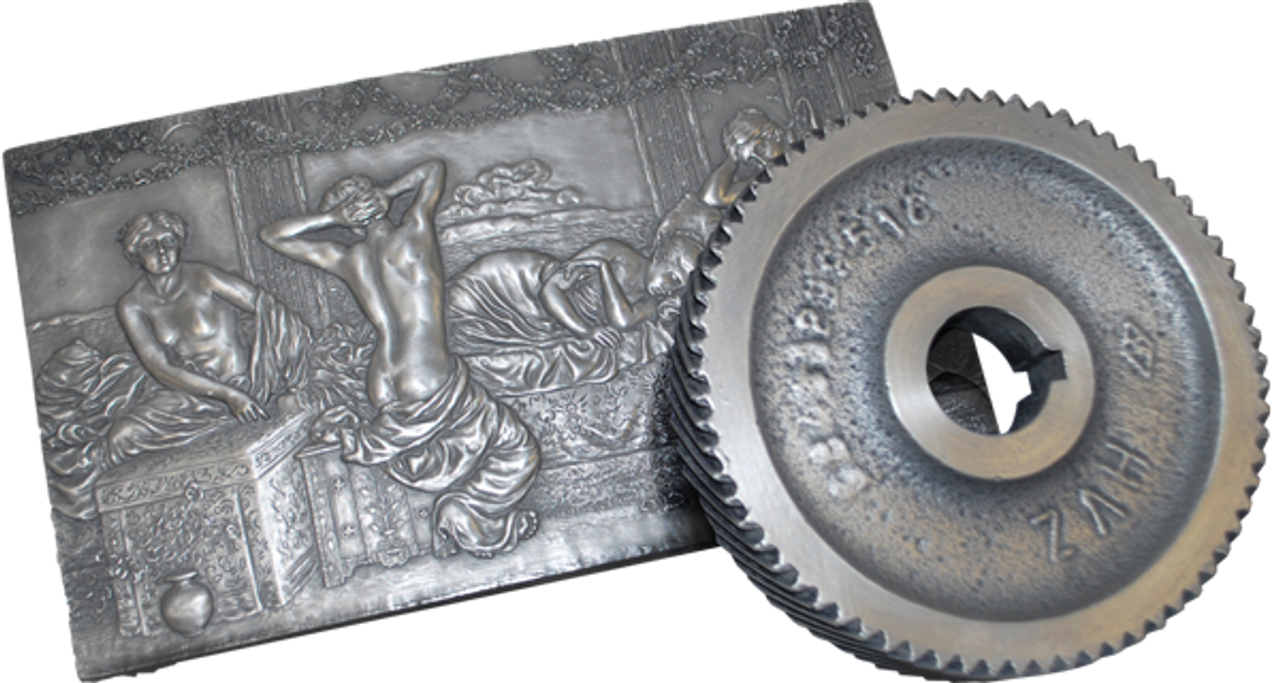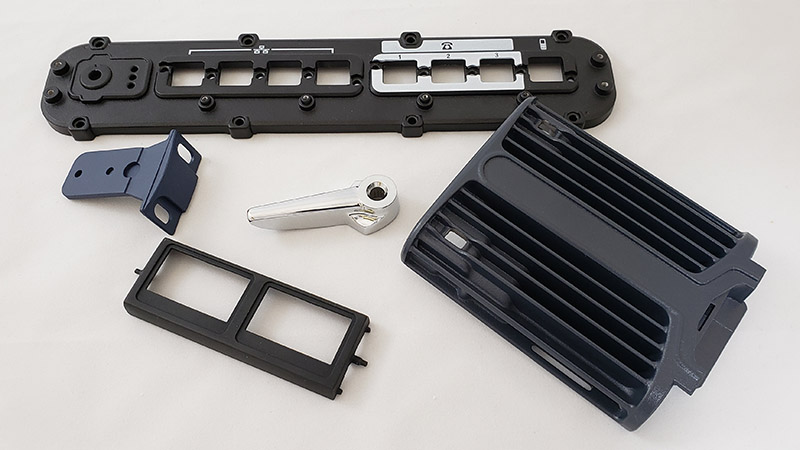What makes a Casting Foundry an trusted partner in metal fabrication
Finest Practices for Maintenance and Applications in the Light Weight Aluminum Shop Market: A Thorough Summary
Preserving devices in the aluminum factory market is essential for operational success. Regular examinations and anticipating maintenance can considerably minimize downtime and boost safety and security. Advanced modern technologies, such as IoT and information analytics, play a critical function in this procedure. Comprehending the full extent of best techniques requires a more detailed assessment of details strategies and their impacts on effectiveness. What are the necessary components that add to a reliable upkeep framework?
Importance of Regular Maintenance in Aluminum Foundries
Routine upkeep plays an important role in the effective operation of aluminum shops. By methodically servicing and examining equipment, foundries ensure peak performance and long life of equipment. Normal upkeep activities, such as lubrication, element, and cleansing replacement, assistance protect against unexpected failures that can lead to expensive downtime.
Regular checks improve office safety by recognizing prospective risks prior to they escalate right into serious problems. Devices that is well-kept operates better, causing improved product top quality and decreased waste. Furthermore, adherence to an organized upkeep routine can sustain conformity with industry guidelines, thus cultivating a track record for integrity and top quality within the market.
Implementing Anticipating Upkeep Techniques
Predictive upkeep methods take the principles of regular upkeep an action better by leveraging data analytics and advanced tracking technologies. In aluminum foundries, these techniques allow drivers to anticipate devices failures before they happen, thus minimizing unexpected downtimes and maximizing functional efficiency. By making use of sensing units and IoT devices, real-time data can be gathered on equipment performance, permitting the identification of potential problems via predictive analytics.
Maximizing Melting and Pouring Processes
Reliable melting and putting procedures are vital for taking full advantage of productivity and ensuring the quality of aluminum castings. To enhance these processes, foundries ought to concentrate on precise temperature control throughout melting, as this directly impacts the metallurgical homes of the alloy. Making use of advanced melting technologies, such as induction and resistance melting, can enhance energy efficiency and reduce cycle times.
Carrying out automated pouring systems minimizes human mistake and preserves uniformity in the pouring procedure. Appropriate mold prep work, including ample preheating, is vital to prevent thermal shock and enhance mold and mildew long life.

Enhancing Security Protocols in Factory Workflow
Focusing on safety in aluminum foundry operations is vital for protecting workers and guaranteeing a productive environment. Effective security methods consist of normal top article training sessions that stress the relevance of personal protective equipment (PPE), such as gloves, goggles, and helmets. Additionally, the facility of clear emergency situation procedures is essential in handling possible crashes.
Regular inspections of tools and equipment aid recognize threats before Visit This Link they intensify into severe issues. Implementing a durable reporting system urges workers to communicate safety and security worries without worry of effect. Furthermore, cultivating a culture of safety and security assurances that every staff member understands their duty in maintaining a safe and secure work environment.
Furthermore, ensuring appropriate air flow and surveillance air high quality can minimize exposure to unsafe fumes and dust. By enhancing these methods, aluminum shops can significantly reduce the danger of crashes and create an environment where workers feel valued and safe, eventually boosting total operational performance.
Leveraging Technology for Improved Effectiveness
Utilizing advanced innovation has actually become significantly essential for light weight aluminum factories aiming to improve operational performance. Automation and robotics play a crucial function in streamlining manufacturing processes, reducing labor prices, and lessening human error. Carrying out real-time tracking systems enables the continual evaluation of equipment efficiency, making it possible for positive upkeep and minimizing downtime.
The assimilation of data analytics supplies beneficial insights into functional operations, helping with better decision-making and source allotment. As an example, anticipating analytics can identify prospective failings prior to they occur, additional maximizing upkeep timetables.
Additionally, taking on advanced melting you can try here and casting innovations enhances power performance and product return, which are fundamental for sustainability in the industry. By embracing these technological improvements, light weight aluminum factories can not just enhance performance yet also preserve a competitive edge in a progressively requiring market (Casting Foundry). Inevitably, leveraging technology is critical in driving advancement and improving total operational efficiency within the industry

Often Asked Questions
What Prevail Signs of Tools Wear in Light Weight Aluminum Foundries?
Common indicators of equipment wear in light weight aluminum shops include uncommon noises, lowered efficiency, raised vibration, overheating parts, leaks, and visible deterioration. These indicators commonly indicate the demand for maintenance or prospective substitute to prevent expensive downtime.
How Can I Train Personnel for Effective Upkeep Practices?
To educate staff for efficient maintenance techniques, one can implement hands-on workshops, establish detailed manuals, motivate mentorship programs, and perform routine analyses to evaluate skills and understanding, making certain all employees recognize maintenance protocols completely.
What Are the Environmental Laws for Light Weight Aluminum Foundries?
Aluminum shops undergo various environmental regulations, including exhausts control, waste monitoring, and source preservation. Conformity warranties very little environmental effect, promoting sustainability while adhering to regional, national, and global ecological criteria and laws.
Just How Do Shops Take Care Of Waste and Recycling of Aluminum?
Foundries manage waste and recycling by implementing systems for collecting scrap light weight aluminum, making use of advanced separation technologies, and collaborating with recycling centers to ensure effective healing processes, consequently decreasing ecological effect and advertising sustainability within the sector.
What Are the Expenses Associated With Implementing Advanced Technologies?
Applying innovative technologies in foundries sustains considerable costs, consisting of preliminary investment, training, and maintenance expenses. Nonetheless, the long-lasting benefits, such as boosted effectiveness and minimized waste, commonly justify these expenses, resulting in boosted earnings.
Regular maintenance plays an important role in the effective operation of light weight aluminum factories. In light weight aluminum factories, these methods make it possible for drivers to prepare for equipment failures before they take place, consequently reducing unplanned downtimes and optimizing operational performance. Making use of innovative modern technology has ended up being significantly crucial for light weight aluminum shops intending to improve functional effectiveness. Common signs of tools wear in light weight aluminum factories consist of uncommon noises, decreased efficiency, raised resonance, overheating parts, leakages, and visible corrosion. Implementing innovative innovations in foundries incurs significant prices, consisting of initial financial investment, training, and maintenance expenses.